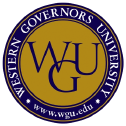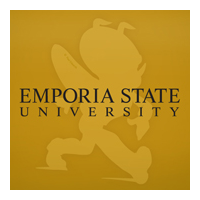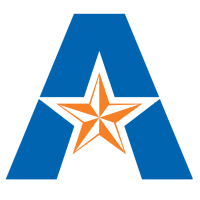What do they do?
Develop instructional material, coordinate educational content, and incorporate current technology into instruction in order to provide guidelines to educators and instructors for developing curricula and conducting courses. May train and coach teachers. Includes educational consultants and specialists, and instructional material directors.
Also known as:
Curriculum and Instruction Director, Curriculum Coordinator, Curriculum Director, Curriculum Specialist, Education Specialist, Instructional Designer, Instructional Systems Specialist, Instructional Technologist, Learning Development Specialist, Program Administrator
-
8.3%
Change
Ranks #31 in job growth rate500Job Openings
Ranks #15 in net job growth
-
Western Governors University
Salt Lake City, UT
-
Emporia State University
Emporia, KS
-
University of St Francis
Joliet, IL
-
Central Michigan University
Mount Pleasant, MI
-
Concordia University-Nebraska
Seward, NE
Looking for colleges that offer a specific major? Use the College Match Tool to find your best-matched schools and discover your estimated Net Price!
- Doctorate or Professional Degree (9%)
- Master's degree (45%)
- Bachelor's degree (28%)
- Associate's degree (5%)
- Some college, no degree (8%)
- High school diploma equivalent (4%)
- Less than high school diploma (1%)
People in this career often have these skills:
- Learning Strategies - Selecting and using training/instructional methods and procedures appropriate for the situation when learning or teaching new things.
- Writing - Communicating effectively in writing as appropriate for the needs of the audience.
- Speaking - Talking to others to convey information effectively.
- Instructing - Teaching others how to do something.
- Reading Comprehension - Understanding written sentences and paragraphs in work-related documents.
- Active Listening - Giving full attention to what other people are saying, taking time to understand the points being made, asking questions as appropriate, and not interrupting at inappropriate times.
- Monitoring - Monitoring/Assessing performance of yourself, other individuals, or organizations to make improvements or take corrective action.
- Critical Thinking - Using logic and reasoning to identify the strengths and weaknesses of alternative solutions, conclusions, or approaches to problems.
- Active Learning - Understanding the implications of new information for both current and future problem-solving and decision-making.
- Social Perceptiveness - Being aware of others' reactions and understanding why they react as they do.
- Coordination - Adjusting actions in relation to others' actions.
- Complex Problem Solving - Identifying complex problems and reviewing related information to develop and evaluate options and implement solutions.
- Judgment and Decision Making - Considering the relative costs and benefits of potential actions to choose the most appropriate one.
- Service Orientation - Actively looking for ways to help people.
- Time Management - Managing one's own time and the time of others.
People in this career often know a lot about:
- Education and Training - Knowledge of principles and methods for curriculum and training design, teaching and instruction for individuals and groups, and the measurement of training effects.
- English Language - Knowledge of the structure and content of the English language including the meaning and spelling of words, rules of composition, and grammar.
- Administration and Management - Knowledge of business and management principles involved in strategic planning, resource allocation, human resources modeling, leadership technique, production methods, and coordination of people and resources.
- Mathematics - Knowledge of arithmetic, algebra, geometry, calculus, statistics, and their applications.
- Computers and Electronics - Knowledge of circuit boards, processors, chips, electronic equipment, and computer hardware and software, including applications and programming.
- Customer and Personal Service - Knowledge of principles and processes for providing customer and personal services. This includes customer needs assessment, meeting quality standards for services, and evaluation of customer satisfaction.
- Public Safety and Security - Knowledge of relevant equipment, policies, procedures, and strategies to promote effective local, state, or national security operations for the protection of people, data, property, and institutions.
- Personnel and Human Resources - Knowledge of principles and procedures for personnel recruitment, selection, training, compensation and benefits, labor relations and negotiation, and personnel information systems.
- Communications and Media - Knowledge of media production, communication, and dissemination techniques and methods. This includes alternative ways to inform and entertain via written, oral, and visual media.
People in this career often have talent in:
- Written Comprehension - The ability to read and understand information and ideas presented in writing.
- Oral Expression - The ability to communicate information and ideas in speaking so others will understand.
- Written Expression - The ability to communicate information and ideas in writing so others will understand.
- Oral Comprehension - The ability to listen to and understand information and ideas presented through spoken words and sentences.
- Speech Clarity - The ability to speak clearly so others can understand you.
- Problem Sensitivity - The ability to tell when something is wrong or is likely to go wrong. It does not involve solving the problem, only recognizing that there is a problem.
- Speech Recognition - The ability to identify and understand the speech of another person.
- Deductive Reasoning - The ability to apply general rules to specific problems to produce answers that make sense.
- Near Vision - The ability to see details at close range (within a few feet of the observer).
- Originality - The ability to come up with unusual or clever ideas about a given topic or situation, or to develop creative ways to solve a problem.
- Inductive Reasoning - The ability to combine pieces of information to form general rules or conclusions (includes finding a relationship among seemingly unrelated events).
- Information Ordering - The ability to arrange things or actions in a certain order or pattern according to a specific rule or set of rules (e.g., patterns of numbers, letters, words, pictures, mathematical operations).
- Category Flexibility - The ability to generate or use different sets of rules for combining or grouping things in different ways.
- Fluency of Ideas - The ability to come up with a number of ideas about a topic (the number of ideas is important, not their quality, correctness, or creativity).
People in this career often do these activities:
- Evaluate performance of educational staff.
- Train staff members.
- Enforce rules or policies governing student behavior.
- Serve on institutional or departmental committees.
- Advise educators on curricula, instructional methods, or policies.
- Advise students on academic or career matters.
- Write grant proposals.
- Order instructional or library materials or equipment.
- Modify teaching methods or materials to accommodate student needs.
- Promote educational institutions or programs.
- Evaluate effectiveness of educational programs.
- Research topics in area of expertise.
- Organize informational materials.
- Direct activities of subordinates.
This page includes data from:

 Occupation statistics: USDOL U.S. Bureau of Labor Statistics Occupational Employment Statistics
Occupation statistics: USDOL U.S. Bureau of Labor Statistics Occupational Employment Statistics
 Videos: CareerOneStop, USDOL/ETA and the Minnesota Department of Employment & Economic Development
Videos: CareerOneStop, USDOL/ETA and the Minnesota Department of Employment & Economic Development









